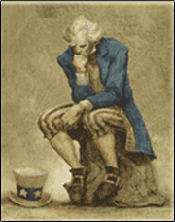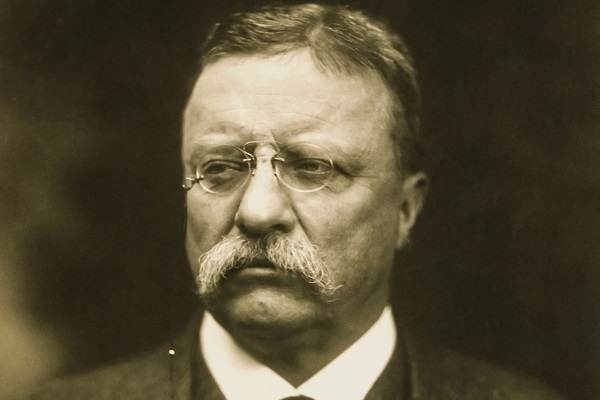
–>
September 18, 2022
What is progress, and what do progressives want? We Americans surely ought to know by now. After all, we’ve been dealing with self-labeled progressives since the early decades of the last century.
‘); googletag.cmd.push(function () { googletag.display(‘div-gpt-ad-1609268089992-0’); }); }
The assumption is that progress is a good thing, maybe even an inevitable thing. President Obama assumed as much with his “arc of history” that bends only in a progressively statist direction. Once there were creeping socialists; now there are bending arc-ers.
Is that what progressives want? Actually, the answer is likely to be very different, depending upon which generation of progressives is being asked.
But first a similarity: All progressives want to progress beyond the Declaration of Independence and the Constitution. Those original progressives, Theodore Roosevelt and Woodrow Wilson, presumed that neither document was really up the demands of the twentieth century, let alone the twenty-first.
‘); googletag.cmd.push(function () { googletag.display(‘div-gpt-ad-1609270365559-0’); }); }
For Roosevelt, the Constitution was there not to be observed, but to be skirted or, better yet, ignored. When faced with the coal strike of 1902, a frustrated T.R. bellowed, “To hell with the Constitution; the people need coal.” The speaker of the House, Joe Cannon, was not surprised by such rhetoric. “Roosevelt,” he fumed, “has no more use for the Constitution than a tomcat has for a marriage license.”
Woodrow Wilson, who re-segregated the federal government that T.R. had largely de-segregated (sometimes even contemporary progressives didn’t agree), trained his skeptical eye on the Declaration of Independence, doubting that people of all races really were created equal.
And today’s progressives? Many progressives want the Constitution drastically amended or scrapped altogether, while doubting what preacher’s kid Woodrow Wilson did not doubt — namely, the existence of a creator, defined by Jefferson as “Nature’s God.”
All progressives are always seeking a bigger and better federal bureaucracy. But once again, there are differences between progressives then and now. Government by expert was the original progressive answer. Their assumption was that such experts would be politically neutral. Opposed to any and all special interests, these experts would simply do what was right rather than what was politically expedient. And they would follow the science without ever politicizing science.
Today’s progressives regard the bureaucracy itself as one large and powerful special interest—and then behave accordingly. Differences in degree often do become differences in kind.
The original progressives did try to make the political system much more democratic, via such reforms as initiative, referendum, and recall, as well as primary elections and the direct election of senators. So what really was their ultimate solution: government by expert or government by the people? It seems that the original progressives were never quite certain.
‘); googletag.cmd.push(function () { googletag.display(‘div-gpt-ad-1609268078422-0’); }); } if (publir_show_ads) { document.write(“
Today’s progressives may pay lip service to upholding “our democracy.” At the same time, they can barely disguise their preference for government by bureaucrats and judges, when not openly revealing their distaste for a whole lot of people, whether they be “deplorables” or “semi-fascists.”
Then there were early twentieth-century progressive initiatives that today’s progressives would find horrifying. Roosevelt, for example, was enamored of eugenics. He was known to pore over Census data, worrying that white America was committing “race suicide.” The equally progressive Margaret Sanger, founding mother of what would become Planned Parenthood, was equally attracted to eugenic solutions, even if she was not exactly disturbed by declining birth rates.
High atop the early progressive wish list was controlling, possibly even eliminating, the production and sale of alcohol. That wish was eventually realized with the passage of the eighteenth amendment. The modern progressive campaign against tobacco might be somewhat comparable. Such a campaign is surely defined as progressive. But then so is legalizing marijuana, while banning booze is now dismissed as reactionary.
There surely must be at least one major issue about which all progressives, old and new, would be in complete agreement. Protecting the environment might be it, except that it isn’t. In fact, the original progressives would be appalled to be linked with today’s progressive environmentalists.
The memory of Theodore Roosevelt is often trotted out by Democratic progressives to tut-tut Republicans for abandoning the policies of their illustrious forebear. But it’s more than doubtful that T.R. would have endorsed the current “green energy” campaign to combat “climate change.”
To be sure, the “Rough Rider” was a conservationist/preservationist, who presided over a dramatic expansion of our national park system. But he was also an aggressive advocate of economic growth and the equally aggressive use of our natural resources. He even battled and defeated John Muir of the Sierra Club to transform a piece of Yosemite into a reservoir for the city of San Francisco.
Roosevelt’s chief forester, Gifford Pinchot, could see the “making of prosperous homes” in a stand of timber. The key was forest management and re-forestation, all the better to produce “maximum sustained yield” for an ever-expanding national economy.
For better or for worse, the original progressives were nationalists and patriots, who anticipated that the twentieth century would be the American century. T.R. was — and remains — the supreme symbol of that progressive mindset. But he was not a twenty-first-century progressive. Certainly, no one who long ago worried about declining family size would likely be a pro-choice progressive today.
As a progressive, Roosevelt railed against what he called the “lunatic fringe,” including socialists whose possible rise to power he strongly opposed. Anything but a socialist, “creeping” or otherwise, T.R. thought a powerful federal bureaucracy would simultaneously manage capitalism and blunt socialism. Today’s progressives have a reverse set of priorities: they seek to blunt capitalism while managing our way to some version of bureaucratized socialism.
But all differences between T.R. progressives and today’s progressives collapse into virtual insignificance with this: progressives then were unabashed nationalists and patriots; progressives now are unembarrassed post-nationalists.
Roosevelt operated on the basis of an unspoken arc of history, which envisioned the United States as a rising world power. He pushed matters along with his dispatching of the Great White Fleet around the world, the building of the Panama Canal, and warring to take control of the Philippines.
And then there was the dream of tapping into the China market. Today’s progressives think in terms of what China can make for us, not what we might sell to them.
Consuming, rather than producing, is the mark of decline, not greatness. In any case, managing an American decline would not have been Theodore Roosevelt’s idea of progress. Nor would sacrificing American sovereignty for the sake of any internationalist agenda.
In sum, these huge differences between progressives then and now ought to be a cautionary tale for all of us — progressives included. The same goes for the deeply flawed progressive argument that our founding documents are themselves deeply flawed.
What was good enough for Abraham Lincoln should still be good enough for us. Unlike Wilson, Lincoln claimed never to have had a political thought that did not spring from the Declaration of Independence. And unlike T.R., he regarded the Constitution as the “silver frame” around the “apple of gold” that was the Declaration.
With Lincoln in mind, let’s work on finding our way back to our founding documents. And while we’re at it, let’s think of that as progress. After all, how can there be real progress without a set of standards and goals in mind? Otherwise, we are left mindlessly arc-ing our way to who knows where.
John C. “Chuck” Chalberg taught American history and for many years has performed around the country as Theodore Roosevelt.

Image via Wikimedia Commons, public domain.
<!– if(page_width_onload <= 479) { document.write("
“); googletag.cmd.push(function() { googletag.display(‘div-gpt-ad-1345489840937-4’); }); } –> If you experience technical problems, please write to [email protected]
FOLLOW US ON
<!–
–>
<!– _qoptions={ qacct:”p-9bKF-NgTuSFM6″ }; ![]() –> <!—-> <!– var addthis_share = { email_template: “new_template” } –>
–> <!—-> <!– var addthis_share = { email_template: “new_template” } –>







